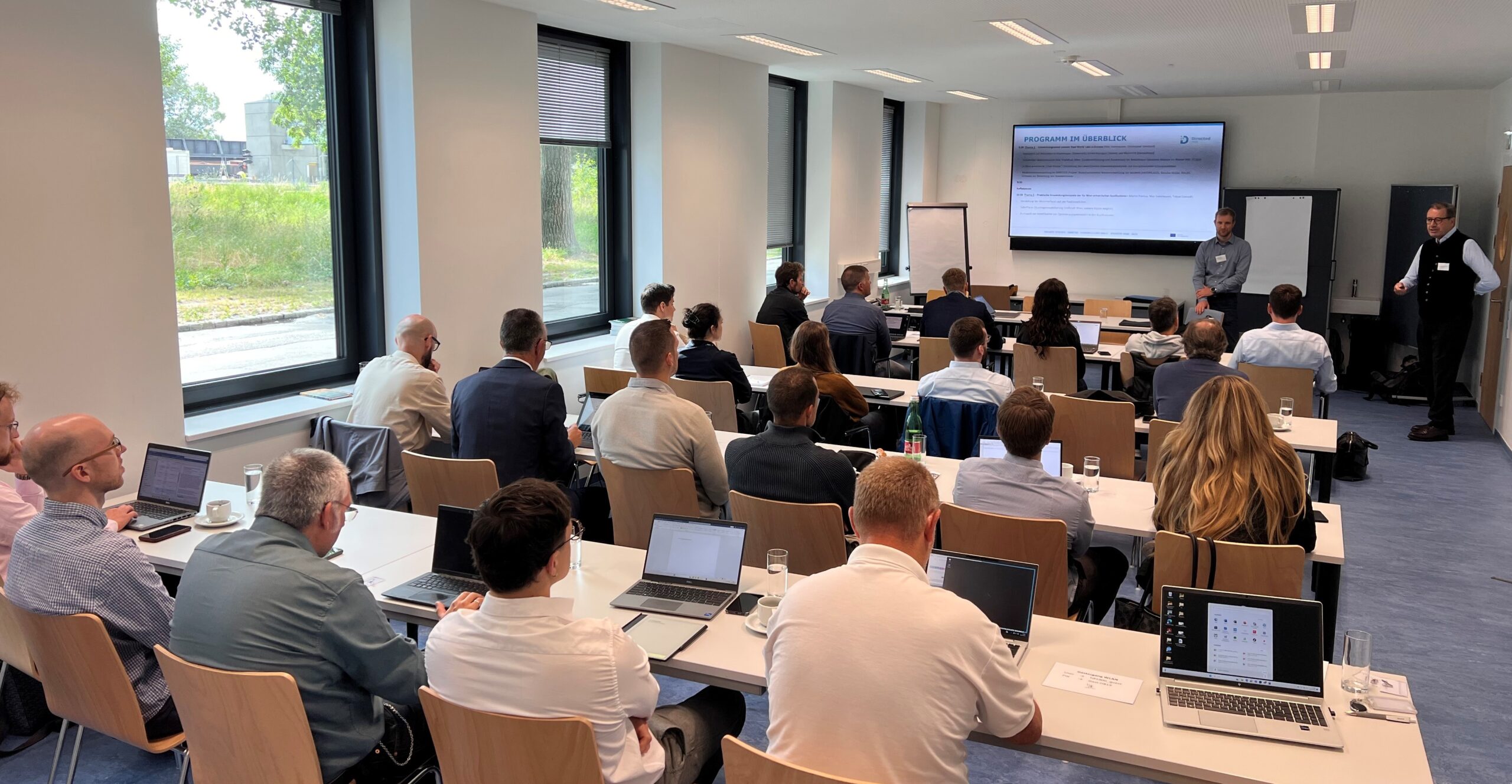On July 9th, everything revolved around heavy rainfall, climate scenarios, and how we can better prepare our cities for the future – right in the heart of Vienna!
The workshop kicked off with an exciting overview of the EU-funded DIRECTED project (https://directedproject.eu/) and its four Real World Labs. From there, we moved straight into the results of the stakeholder needs assessment from our first workshop in September. This led to three concrete user stories – developed by the Vienna Task Force – focusing on pluvial and fluvial flood scenarios in and around Vienna, all under different climate change projections.
Models, data & lots of ideas
To bring these scenarios to life, models such as the Danube Model (PIK Potsdam) and the SAFERPlaces Model (GECOsistema) are being used. During an open discussion session, the current development status of these models was presented, and participants gave direct input on potential improvements.
Our web application prototype also made its debut: Participants were invited to give live feedback – and they delivered! Key suggestions included increasing map resolution (current LiDAR data is at 1 x 1 meters) and integrating sewage and infiltration data for even more precise pluvial flood modelling.
Research where the water flows
One real highlight of the day was the guided tour of the BOKU experimental hall, led by Dipl.-Ing. Dominik Worf. Participants got a behind-the-scenes look at ongoing research projects – including what is Europe’s largest artificial riverbed with a natural slope.
The afternoon dove deeper:
- Hans Starl spoke about flood protection, with a focus on construction standards, regulations, and how they impact insurance risks.
- Stefan Obermaisser, disaster management expert from the Lower Austrian regional government, presented AT-Alert, the Austrian Cell Broadcast warning system – a tool being continuously developed to alert and inform people in danger zones quickly and effectively during emergencies.
To wrap up, we went interactive again: Using the Risk Tandem Framework developed by SEI, we conducted an interoperability analysis to identify gaps and discuss co-development processes and risk layering dimensions. A live Mentimeter poll allowed participants to share their views in real time – sparking engaging discussions.
Takeaway: An intense and insightful workshop full of knowledge exchange, new ideas, and real progress for Vienna and the entire Danube region. Thanks to everyone who took part!

